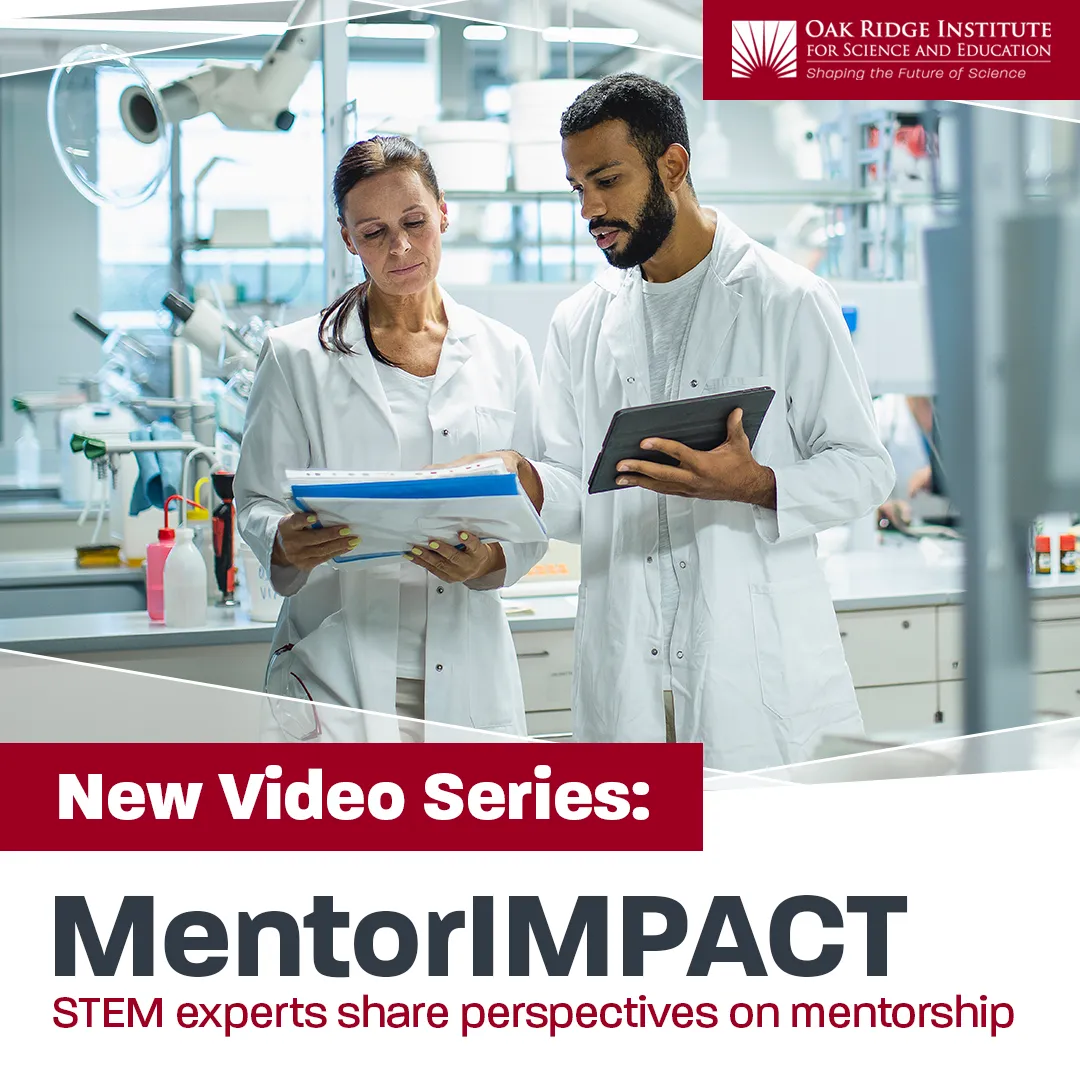Fostering success: Building powerful mentorship connections
by Beth White, Ph.D., ORISE STEM Workforce Development
Key takeaways
- Mentorship is a crucial tool for personal and professional growth, especially in STEM fields, aiding participants in navigating government careers.
- Mentors serve as guides, coaches, supporters, and connectors, helping mentees with academic paths, personal growth, perseverance, and networking opportunities.
- Effective mentorship is rooted in trust, mutual respect, and shared goals, leading to increased career satisfaction and skill development for mentees.
- Mentorship is a journey aimed at empowering mentees to grow and succeed independently, contributing to a diverse and innovative workforce for future challenges.
Mentorship is one of the most powerful yet often overlooked tools for personal and professional growth. Many mentors step into the role without formal training, relying on intuition rather than strategy to guide their mentees. However, mentoring is both an art and a science—one that requires intentionality, skill, and a commitment to fostering meaningful relationships.
For STEM (science, technology, engineering, and mathematics) participants aspiring to become federal employees, mentorship takes on even greater importance. Mentors play a critical role in helping participants navigate the complexities of government careers while fostering the skills needed to thrive in public service.
This blog explores what it means to be a mentor, shares best practices for effective mentoring, and discusses how mentorship can leave a lasting impact on both mentors and mentees.
Why mentorship matters
Mentorship is more than just offering advice or guidance. It’s about building relationships rooted in trust, mutual respect, and shared goals. Research has shown that mentorship can lead to increased career satisfaction, skill development, and access to opportunities for mentees. For mentors, it offers valuable insights, broader perspectives, and the fulfillment of helping others succeed.
In STEM fields, mentorship bridges the gap between academic learning and real-world application, especially for participants who aspire to work in federal agencies. Federal roles often feel intimidating due to complex application processes and the perceived exclusivity of government careers. Mentors help participants overcome these barriers by providing guidance, encouragement, and access to resources.
A mentor’s role
A great mentor wears many hats, especially when guiding STEM participants toward federal careers. Here are four key roles mentors play:
- Guide: Help participants navigate their academic and career paths, including coursework, internships, and research opportunities.
- Coach: Push participants to step outside their comfort zones and embrace growth.
- Supporter: Encourage participants to persevere through challenges, such as rigorous STEM coursework or competitive federal hiring processes.
- Connector: Introduce participants to networks, resources, and opportunities, such as STEM-related government programs and professional organizations.
Best practices for effective mentoring
Mentorship isn’t a one-size-fits-all relationship. Here are some evidence-based practices to ensure your mentorship has a lasting impact:
- Build trust: Trust is the foundation of any successful mentoring relationship. This involves active listening, empathy, and consistency.
- Set clear expectations: Discuss goals, boundaries, and mutual responsibilities at the beginning of the placement. An Individual Development Plan (IDP) can help formalize these expectations.
- Encourage reflection: Instead of giving answers, ask open-ended questions that prompt mentees to think critically about their goals and decisions.
- Provide constructive feedback: Feedback should be specific, actionable, and focused on growth. This includes building awareness of federal opportunities and guidance on federal application processes.
- Celebrate milestones: Recognizing achievements—big and small—motivates mentees and reinforces their progress.
Research highlights the importance of structured and intentional mentoring, which has been shown to significantly improve outcomes for both mentors and mentees in STEM fields (Pfund et al., 2016). By mentoring STEM participants, we can help them achieve their goals while strengthening the future of public service.
Closing thoughts
Mentorship is a journey, not a destination. Whether you’re a seasoned mentor or just starting out, remember that your role is to empower your mentee to grow, learn, and succeed independently. By mentoring participants, you’re not only shaping individual futures but also contributing to the development of a varied and innovative workforce that will tackle the challenges of tomorrow.
References
- Pfund, C., House, S., Spencer, K., Asquith, P., Carney, P., Masters, K. S., ... & Fleming, M. (2016). Training mentors of clinical and translational research scholars: A randomized controlled trial. Academic Medicine, 91(5), 774–782. https://pubmed.ncbi.nlm.nih.gov/24667509/ DOI: 10.1097/ACM.0000000000000218
- Center for the Improvement of Mentored Experiences in Research (CIMER)

MentorIMPACT
ORISE recognizes the crucial role that mentors play in the personal and professional development of the next generation of STEM. These videos feature a few of our mentors across the federal departments and agencies that offer internships and fellowships through ORISE who were gracious enough to talk about their experiences and expertise. The stories they tell offer a glimpse of the inspiration they instill, their commitment to life-long learning, and their passion for “shaping the future of science.”

